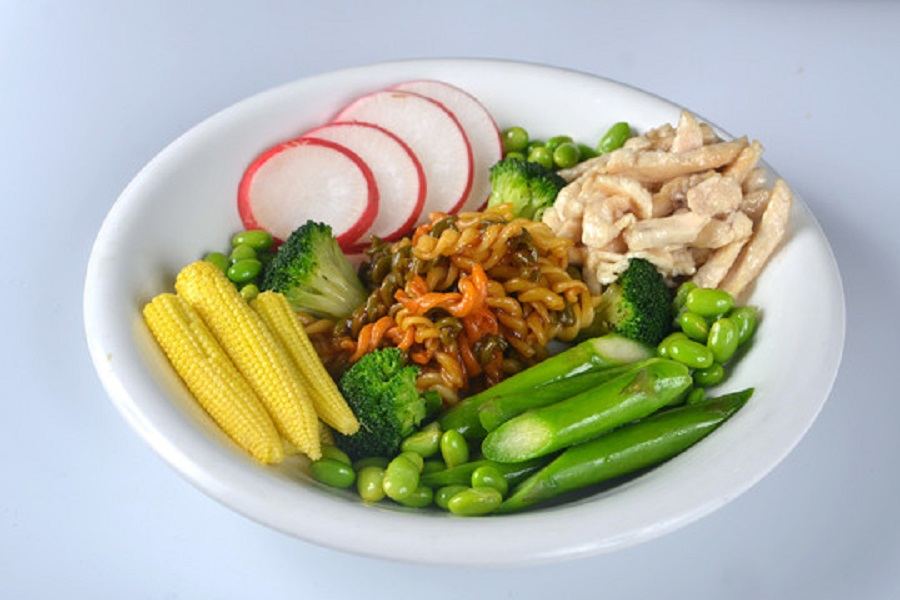One of the most common questions among fitness enthusiasts is what to eat after a workout to build muscle. While there’s no one-size-fits-all answer, there are some general guidelines you can follow to help maximize your muscle gain and recovery.
In this article, we’ll explore the best foods to incorporate into your post-workout meal, as well as some important factors to consider when planning your meals.
Why Post-Workout Nutrition Matters
After an intense workout, your body needs to replenish the energy that was used up during exercise and repair any damage caused to your muscles. Providing your body with the right nutrients at the right time can help optimize the muscle-building process and aid in recovery.
Studies have shown that consuming protein and carbohydrates within 30 minutes to an hour after exercise can help enhance muscle protein synthesis, which is essential for building muscle mass. Carbohydrates provide energy to fuel your muscles and replenish glycogen stores, while protein provides the building blocks needed for muscle repair and growth.
Best Foods for Muscle Building
Lean Protein Sources: Chicken, Turkey, Fish, and Eggs
Protein is essential for building and repairing muscle tissue, so it’s important to include a source of high-quality protein in your post-workout meal. Aim for 20-25 grams of protein per meal, which is the amount needed to maximize muscle protein synthesis.
Some good options include chicken, turkey, fish, and eggs. These lean protein sources are also low in fat, making them ideal for those looking to control their calorie intake.
Complex Carbohydrates: Brown Rice, Quinoa, Wholegrain Bread, and Sweet Potatoes
Carbohydrates are important for replenishing glycogen stores in your muscles, which can become depleted during exercise. Complex carbohydrates, such as brown rice, quinoa, wholegrain bread, and sweet potatoes, are ideal for post-workout meals as they provide a sustained release of energy.
Avoid simple carbohydrates, such as sugar and refined grains, which can cause blood sugar spikes and crashes. These can lead to energy dips and interfere with muscle recovery.
Fruits and Vegetables: Berries, Leafy Greens, and Cruciferous Vegetables
Fruits and vegetables are packed with vitamins, minerals, and antioxidants, which help support overall health and aid in recovery. Berries are particularly rich in antioxidants, while leafy greens and cruciferous vegetables are high in fiber, which can aid in digestion and prevent constipation.
Healthy Fats: Avocado, Nuts, and Seeds
While protein and carbohydrates are essential for muscle-building, healthy fats are also important for overall health and wellbeing. Good sources of healthy fats include avocado, nuts, and seeds. These foods are also high in fiber, which helps keep you feeling full and satisfied.
Important Factors to Consider
Timing
As mentioned earlier, it’s important to consume your post-workout meal within 30 minutes to an hour after exercise. This is the window of opportunity where your muscles are most receptive to nutrients and can use them to rebuild and repair.
If you’re unable to eat immediately after a workout, try to have a snack that contains both protein and carbohydrates to help jumpstart the muscle-building process.
Quantity
The amount of food you consume after a workout will depend on your individual needs and goals. However, aim to consume a meal containing 300-500 calories, with a ratio of 3:1 or 4:1 carbohydrates to protein.
If you’re trying to lose weight, you may need to reduce the calorie content of your post-workout meal. Alternatively, if you’re looking to gain muscle mass, you may need to increase your calorie intake.
Hydration
Staying hydrated is essential for optimal muscle function and recovery. Aim to drink at least 8-10 glasses of water per day, and more if you’re exercising in hot or humid conditions.
You can also use sports drinks that contain electrolytes to help replenish fluids lost during exercise. Be careful not to consume too many sugary drinks, as they can interfere with weight loss goals.
Conclusion
Eating the right foods after a workout can help maximize muscle gain and aid in recovery. Aim to consume a meal containing lean protein sources, complex carbohydrates, fruits and vegetables, and healthy fats within 30 minutes to an hour after exercise.
Remember to also consider factors such as timing, quantity, and hydration when planning your post-workout meals. With a little planning and preparation, you can fuel your body with the nutrients it needs to build strong, healthy muscles.
Related topics:


